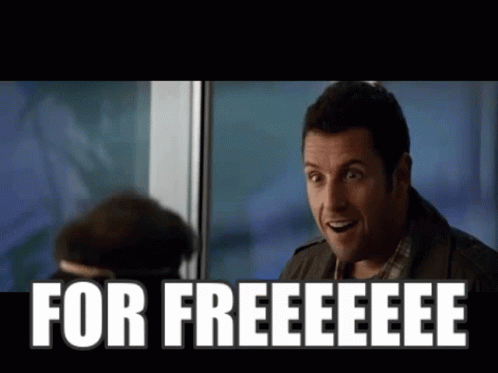
There seems to be something inherently human about wanting to help. I think there is an innate sense of purpose that comes form donating, serving, and contributing to the needs of the less fortunate. However, as discussed in the film, there is an extent to which this altruism actually does more harm than good. I was expecting this film to more dive into the aspects of who is getting rich off of all this humanitarian and development aid. It did briefly touch on this topic, but overall spent most of the time on the in depth reasons that the overall aid system is fundamentally broken from an economic and personal position. As far as my reflections on the film, I have several thoughts on the economic arguments regarding banning cheap or free imports of food, as well as the situation with government and business approval and certification.
Is rice different that sunlight?
- To begin with, I would be curious to dive deeper into the conversation on how subsidized food harms the local economy and workers. The film and even apparently Bill Clinton brought up how because the US brings in so much rice, there is no more local production. They made the argument that there is no longer opportunities for employment in the rural communities because there is no chance for rice farming or even the production of other food. They also made the argument that this leads to people moving to the city to find work and in turn live in slums and are at higher risk for affects of natural disasters like the earthquake. However, I would be curious to discuss this idea more form the perspective of one of our previous readings. I don’t recall the exact passages but we discussed at length the satirical article about blocking out the sun in order to boost local economies. The agreement was that because there was a low cost and free source of light that it was hurting candlemakers. It then went thought all of the people that would be supported from agriculture to coal mining that could benefit from preventing this cheap seller of light form entering the economy. However, the articles purpose was to show the ridiculousness of tariffs and banning low cost goods. The rational is that by not wasting resources on what can be received for free, investment and human capital can be allocated to more productive and specialized parts of the economy. So when I heard the film criticizing this handout of Rice in Haiti, I was curious as to why the same argument wouldn’t apply. The way I see it, if rice is now free, not only are there no longer people that will be starving, but more than that these resources are free to be allocated to more productive and efficient parts of the local economy. Yes there will be temporary job restructuring, as well as more people coming to cities. However urbanization is a good thing from the perspective of international development. Even If the subsidies stoped, the economy would be rich enough to either buy it on their own, or quickly invest in the capacity to make it locally. Either way this seems like banning a free import would harm the economy in the same way blocking the sun would. I do acknowledge that there is the chance of instability in donations which can be much worse. In this specific case they described how there had been free rice for decades so I would not see this as an issue in Haiti, although it would be something to consider in the context of the eggs example in Africa. Overall this seems like it would truly be a good thing to do for Haiti, and would love to discuss further why it can be harmful. *
#Why dont corrupt governments want more taxes?
The second thing that stood out to me was the lack of property rights or capacity to secure loans because of the high barriers to getting proper paperwork. This seems like a vary obvious issue, as well as something that would make much sense for the government to prioritize in their local economies. I would be curious to further discuss why this isn’t the first policy that a government tries to makes simple. Even if they were corrupt, more business means more taxes for their own pockets. I would be curious to dive deeper into what kinds of charities or organizations would be able to make an outsized impact by focusing on this issue of business registration and legal processes. Overall, I thought that this film brought to light many issues I hadn’t considered regarding charity. I would love to discuss some of them further from an economic lens to see how they can best be addressed.